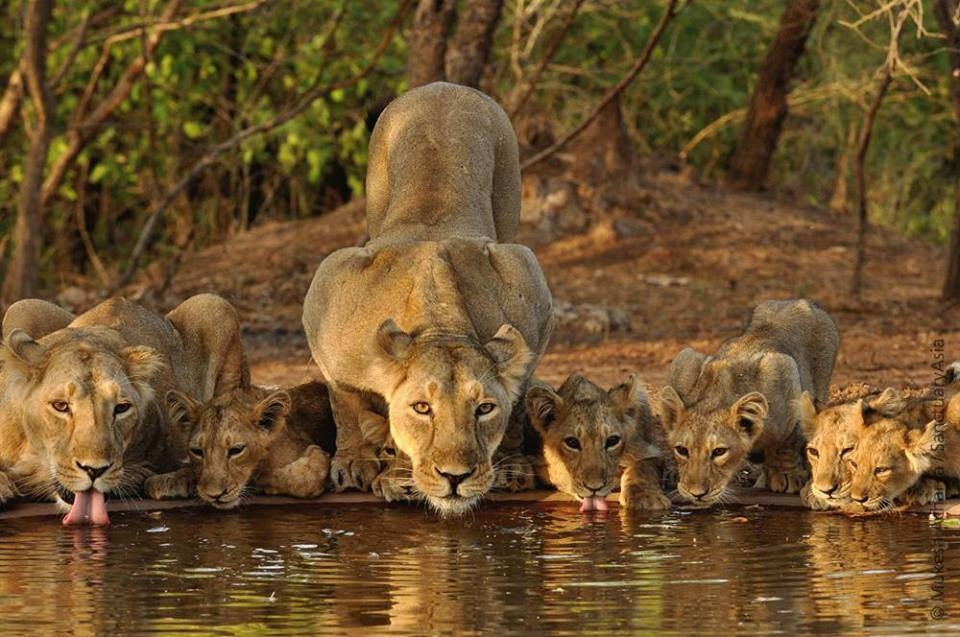
Kuno wildlife Sanctuary Guide - Possible 2nd home for Asia Lions

Similar Attractions
About Kuno Wildlife Sanctuary Guide - Possible 2nd home for Asia Lions
Kuno Wildlife Sanctuary which is also known as Palpur - Kuno Wildlife Sanctuary is situated in Sheopur district of Madhya Pradesh. It is located 140 Kms from Gwalior and has area of approx 345 square kilometres with a buffer of additional 900 square kilometers.
Kuno has been selected site for lion & cheetah rehabilitation project. Currently Asiatic lion are found only in Gir wildlife sanctuary in Western Indian state of Gujarat. Cheetah, which once roamed much of northern plains of India, became extinct in 1948. Plans to reintroduce them from Iran is underway.
The Kuno has the potential to hold populations of all four of India's big cats the tiger, the leopard, the Asiatic lion as well as the cheetah, all four of which have coexisted in the same habitats historically before they were wiped out due to over hunting and habitat destruction.
Kuno is currently home to tiger, Indian wolf, jackal, leopard, langur monkey, blue-bull, chinkara and spotted deer.
Proposed 2nd Home for Asiatic Lions
Kuno wild life Sanctuary is proposed as 2nd home for the Gir National park Lions. After supreme court directive, The Santuary is ready to receive Lions asap.
Now Lions are getting relocated from Gir National Park Gujrat.
Location of Kuno wildlife Sanctuary: This sanctuary is situated at Vijaypur and Sheopur tehsils in Sheopur district. It is 15 km. from the Sesaipura bus stand on Shivpuri-Sheopur road. It can be approached by bus or taxi from Sesaipura bus stand. It can also be approached from Pohari of district Shivpuri at the distance of 25 km. The sanctuary is situated in an isolated hill, sloping in all directions.
What is Unique and Famous in Kuno Wildlife Sanctuary & why ?
Kuno Wildlife Sanctuary is famous for tigers, Jackal, Chinkara and now this sanctuary going to become unique because Asiatic lions can now be relocated from Gir to the Kuno Wildlife Sanctuary. There are large scale deaths in the population annually because of ever increasing competition due to animal overcrowding. This is not enough as Wildlife Institute of India and Wildlife Trust of India has shortlisted Palpur-Kuno wildlife sanctuary as one of the last remaining habitats of Cheetahs. Cheetah, which once roamed much of northern plains of India, became extinct in 1948. Plans to reintroduce them from Iran is underway.
Jungle Safari in Kuno Pulpar
Palpur-Kuno Wildlife Sanctuary can be visited through 4-wheel drive safari vehicle which are not older than 05 years. Here jungle safari happens two times in a days like other national park. Morning Jungle safari start by 6 am and end by 9:30 am. While evening jungle safari starts by 4pm and end by sunset.
About Flora and Fauna
Fauna: Kuno wildlife sanctuary is known worldwide for its largest fauna the major attraction in the sanctuary are Panther, Tiger, Chital, Sambhar, Black Deer, Chinkara, Bear, Blue bull, Chausingha, Jungle cat, Barking Deer, Monkey, Jackals, Hyena, Wild Boar, Fox, Kobra, Nag, Python, Peacock, Kala Teetar, Tree pie, Golden orioles, Drongo, Rollers, Jangli, murgi, Phakta, Bhura, Teetar.
Flora : The major flora found in the kuno wildlife sanctuary is very beautiful and attractive, which attracts a lot of tourists from all over the country. Major Tree found in the sanctuary are: Kardhai, Gurjan, Kher, Kusum, Gurjan, Mahua, Guner, Haldoo, Kullu, Kahua, Semal, Bahera, Tendu, Palas, Bel, Chind, Anwala, Harsingar, Chind, Satawar; Parasites: Bamdha, Amarbel;Grasses : Doob, Lumpy, Machai, Guner, Ponea, Phulara.
Kuno Palpur Lion
Madhya Pradesh's Palpur-Kuno Wildlife Sanctuary may soon become a second home for Asiatic lions as majority members of a central team have favored their translocation from Gujarat's Gir. The last wild population of the Asiatic lion is found in the Gir Forest region of the state of Gujarat. The single population faces the threats of epidemics, natural disasters and other anthropogenic factors.
The project aims to establish a second independent population of Asiatic lions at the Kuno Wildlife Sanctuary in the Indian state of Madhya Pradesh. The recent development has brought a ray of hope for the Madhya Pradesh government and wildlife lovers who have been awaiting the shifting of the lions after a Supreme Court judgement in this regard in April 2013.
About the Locals
The people at Kuno Palpur have invested their lives for the conservation of forest lands and the rich flora and fauna of the wild. You’ll find them working as Guides, Operators, Forest Officers and serving at the resorts and hotels nearby.
Where to stay in Kuno
The Jungle Resort by Madhya Pradesh Tourism with its budget friendly services is your best bid for accommodation at Kuno. You could also try the Forest Rest House and a few other rest houses managed by the locals.





